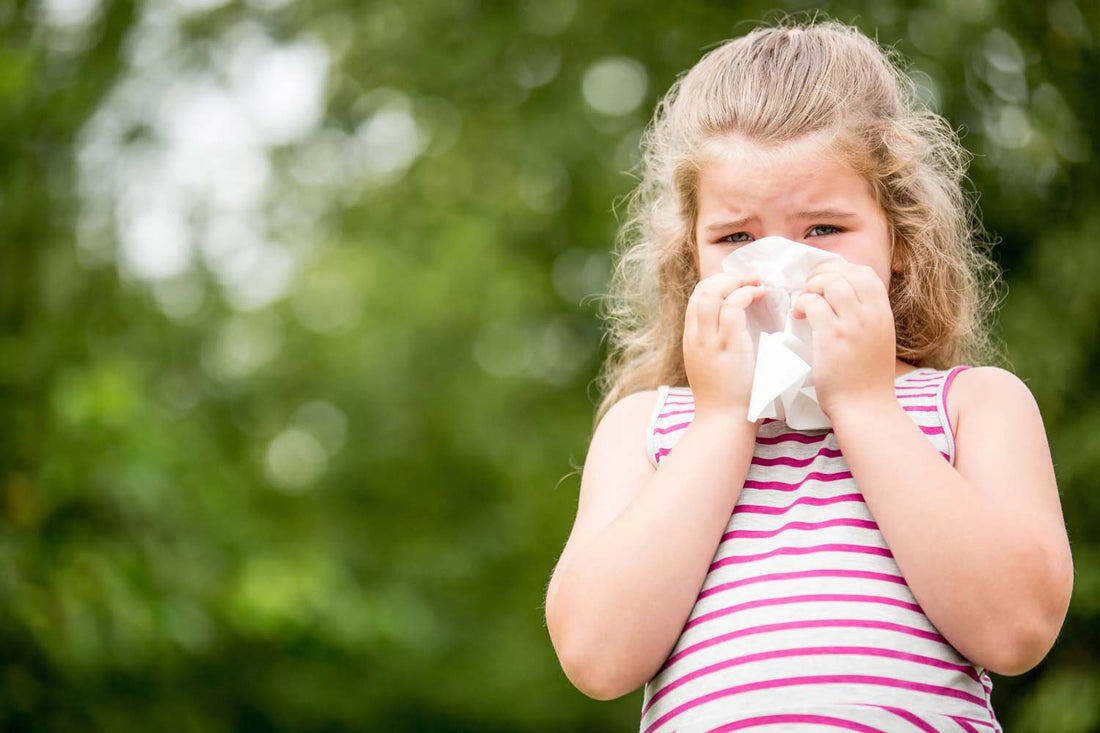If your tissue supply can't keep up with your child's runny nose, you're probably eager for solutions. While most causes of nose-running can't be fixed in a snap, learning more about some of the biggies can get you on the path to making your child more comfortable and potentially minimizing that annoying drip.
Why Your Child Might Have a Constant Runny Nose
Upper Respiratory Infection
Upper respiratory infections, particularly colds, sinus infections, and the flu, are the leading causes of kids' sniffling. It can be tricky to tell the difference between a cold and the flu, according to the Centers for Disease Control and Prevention, but colds are more likely to cause a runny or stuffy nose.
Other cold symptoms tend to be milder than flu symptoms, which may include body aches, fever, fatigue, and coughing. In general, cold and flu congestion clears up within a week. If cold symptoms linger on longer than 10 to 14 days, however, it may be a sinus infection. In this case, the drips from your child’s nose may appear green or yellow.
Allergic Rhinitis
Allergic rhinitis — a.k.a., hay fever — is a common symptom of allergies in kids. It can trigger an itchy, runny nose, sneezing, clogged nostrils, and postnasal drip, which involves mucus running down the throat. These symptoms derive from an immune system response from exposure to an allergen. Common culprits include pollen, insect bites, dust mites, mold, animal hair and dander, and fumes from smoke, cars, dust, or perfume. To determine any allergies, seek testing from your doctor.
Foreign Object
If your child has a runny nose without other cold or flu-like symptoms, such as a cough or fever, a small object like a toy, jewelry, or other foreign body may be to blame. When a small item, such as a bead or eraser head, gets lodged in a nostril, it can cause bad-smelling drainage.
You may be able to remove the object by gently closing the opposite nostril and having your child exhale out through the other. Otherwise, it can likely be removed during a physician visit. If it's unclear whether something is lodged in the nose, a scan such as an X-ray or MRI may be conducted.
Ways to Help Your Child’s Runny Nose

While the specific steps may vary, depending on the cause of your child’s runny nose, there’s a lot you can do to help bring them comfort when they have a persistent runny nose. Here are some suggestions that may help find relief for your child’s runny nose.
- Prop your child’s head up during sleep. To keep your child’s symptoms from worsening at night and to make restful sleep easier, raise your child’s bed by placing boards under the legs of the head of the bed, or a pillow under the head of the mattress.
- Consider OTC medication. If your child is age 4 or older and has a cold with a runny nose, Mucinex® Children’s Multi-Symptom Cold - Very Berry Flavor can help manage symptoms.
- Avoid allergens. If your child has allergies, do your best to avoid allergens. Keep a list handy to share with teachers and friends' parents as well, so they can take precautions, to help with their constant runny nose symptoms too.
- Provide steam. Warm mist from a steamy bath or shower can help ease congestion and make way for easier breathing. Allow your child to sit in a steamy bathroom before bed to invite more comfortable sleep.
- Try using a saline or saltwater rinse. Nasal rinses may be an effective way to find relief for runny noses caused by allergies, colds, flu, or sinusitis.[i] Be sure to always follow instructions on the packaging and consult with your doctor for safe use.
Finding Constant Runny Nose Relief for Children
In the end, understanding the reasons behind your child's persistent runny nose can offer both clarity and relief. Remember that each child is unique, and the best approach may vary depending on the underlying cause. Whether it's a passing cold, an allergic reaction, or a minor obstruction, taking steps to address the issue can bring comfort to both your child and you as a concerned parent.
By keeping a vigilant eye on symptoms, seeking medical guidance when needed, and implementing the strategies we've explored, you're equipped to navigate the challenges of a constant runny nose and ensure your child's well-being. So, keep those tissues handy and watch as your little one regains their boundless energy once they recover from their constant runny nose.






